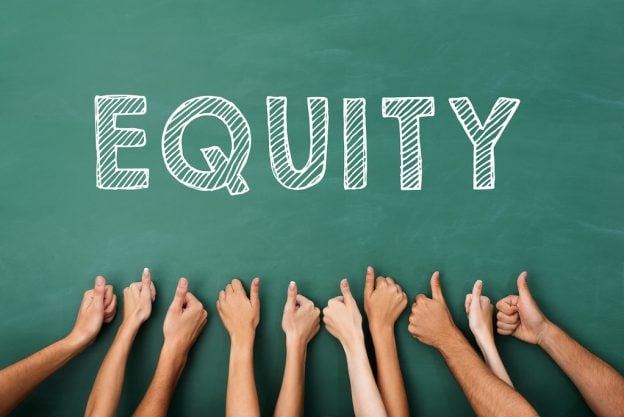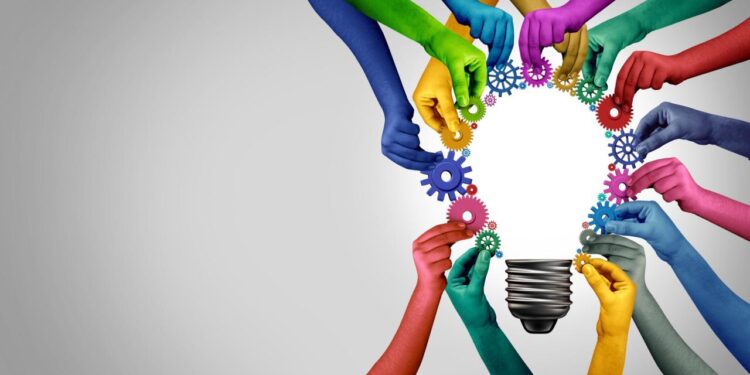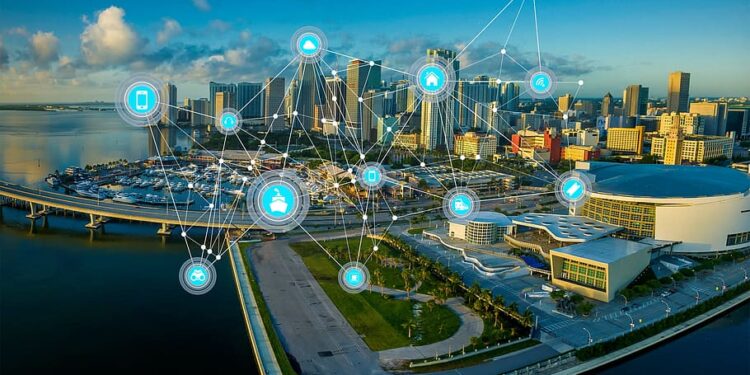In an era defined by rapid technological advancement and profound societal shifts, innovation holds immense promise for progress, prosperity, and problem-solving. Yet, if left unchecked, the benefits of innovation can be unevenly distributed, exacerbating existing inequalities and creating new disparities. This challenge gives rise to the critical need for an Innovation Equity Forum: a dedicated platform for dialogue, collaboration, and strategic action aimed at ensuring that the fruits of innovation are shared broadly and equitably across all segments of society. This isn’t just about ethical considerations; it’s about fostering sustainable growth, unlocking untapped potential, and building a more inclusive future where the transformative power of new ideas genuinely benefits everyone. Exploring driving fairness in innovation reveals a complex but essential endeavor for global well-being.
The Urgency for Equity

Innovation, while a powerful engine for progress, can also deepen existing divides if its development and distribution are not consciously guided by principles of fairness and inclusion. Several factors highlight the pressing need for an innovation equity forum.
A. Exacerbating Existing Inequalities:
* Digital Divide: While digital technologies drive much innovation, a significant portion of the global population still lacks access to reliable internet, affordable devices, or the digital literacy required to participate in the digital economy. Innovation that relies heavily on these factors can leave already marginalized communities further behind.
* Wealth Disparity: The economic benefits of innovation often accrue disproportionately to those who own the intellectual property, control the platforms, or have the capital to invest in new ventures. This can widen the gap between the rich and the poor.
* Access to Breakthroughs: Life-changing innovations in healthcare, education, or clean energy might be prohibitively expensive or geographically inaccessible for many, especially in developing countries or underserved regions.
B. Bias in Design and Development:
* Algorithmic Bias: Artificial Intelligence (AI) and machine learning (ML) models, which power much of modern innovation, are trained on data. If this data is biased, or if the developers lack diverse perspectives, the resulting algorithms can perpetuate or even amplify existing societal biases, leading to discriminatory outcomes in areas like hiring, lending, or criminal justice.
* “Innovation for the Few”: Innovation can sometimes be driven by the needs and desires of a privileged few, neglecting the unique challenges and opportunities faced by marginalized groups. This results in solutions that don’t address critical societal needs.
* Lack of Representation: If innovation teams lack diversity (in terms of gender, race, socioeconomic background, disability status), the products and services they create may inadvertently exclude or disadvantage certain user groups.
C. Displacement and Adaptation Challenges:
* Job Displacement: Automation and AI-driven innovations can lead to job displacement in sectors where routine tasks are automated. Without proactive retraining and social safety nets, this can create widespread economic insecurity.
* Skill Gaps: The rapid evolution of technology creates new skill demands. If education and training systems don’t adapt quickly, large segments of the workforce can find their skills obsolete, unable to participate in the new economy created by innovation.
* Cultural Adaptation: Integrating new technologies and innovative practices into diverse cultural contexts requires sensitivity and understanding. Imposing solutions without local input can lead to rejection or unintended negative consequences.
D. Ethical Considerations and Governance Gaps:
* Data Privacy: Innovations often rely on extensive data collection, raising concerns about privacy, surveillance, and the potential for misuse of personal information. Without robust governance, this can erode trust.
* Ethical Dilemmas: Breakthroughs in areas like gene editing, neurotechnology, or autonomous systems present profound ethical dilemmas that society is often ill-prepared to address, necessitating proactive discussion and framework development.
* Lack of Accountability: When innovative products cause harm (e.g., biased algorithms, unsafe autonomous systems), establishing accountability can be challenging due to the complexity of the technology and diffuse responsibility.
E. Missed Opportunities for Broader Impact:
* Untapped Creativity: Excluding diverse voices from the innovation process means missing out on unique insights, perspectives, and creative solutions that could lead to more robust and impactful innovations.
* Market Potential: Failing to address the needs of underserved populations means missing out on vast untapped market potential and limiting the overall reach and adoption of innovative solutions.
* Social Instability: Widespread inequity in innovation benefits can lead to social unrest, distrust in institutions, and a backlash against technological progress itself.
Building Bridges for Equitable Innovation
An Innovation Equity Forum serves as a crucial convening point, bringing together diverse stakeholders to tackle these complex challenges and steer innovation towards a more equitable path. Its mandate extends beyond mere discussion to concrete action.
A. Fostering Dialogue and Collaboration:
* Multi-Stakeholder Engagement: Bringing together representatives from government, industry, academia, civil society organizations, community leaders, and marginalized groups to ensure diverse perspectives are heard and integrated into innovation discussions.
* Cross-Sectoral Learning: Facilitating knowledge exchange between different sectors (e.g., tech, healthcare, education, finance) to identify common challenges and transfer best practices for equitable innovation.
* Consensus Building: Working towards shared understanding and consensus on principles, policies, and actions needed to promote innovation equity.
* Public Engagement: Creating accessible platforms for broader public dialogue on the societal impacts of innovation, demystifying complex technologies, and gathering citizen input.
B. Developing Ethical Guidelines and Policy Frameworks:
* Responsible Innovation Principles: Co-creating and advocating for a set of ethical principles that guide the development, deployment, and governance of new technologies, ensuring they align with human values and societal well-being.
* Bias Mitigation Strategies: Developing practical guidelines and tools for identifying and mitigating algorithmic bias in AI systems, from data collection to model deployment.
* Data Governance and Privacy: Proposing robust policy frameworks for data collection, usage, and protection that balance innovation with individual privacy rights.
* Regulatory Recommendations: Providing informed recommendations to policymakers on how to create agile and adaptive regulatory environments that foster responsible innovation without stifling progress.
* Accountability Mechanisms: Exploring mechanisms to ensure accountability for the societal impacts of innovation, particularly when negative consequences arise.
C. Promoting Inclusive Design and Development:
* Human-Centered Design Advocacy: Championing methodologies like Design Thinking that place the needs and experiences of diverse users at the center of the innovation process.
* Diversity, Equity, and Inclusion (DEI) in Tech: Encouraging and supporting initiatives to increase diversity within innovation teams and the technology workforce itself, ensuring a broader range of perspectives in design and development.
* Accessibility by Design: Advocating for the integration of accessibility features from the outset of product design, ensuring innovations are usable by people with disabilities.
* Community Co-Creation: Facilitating partnerships between innovators and local communities to co-create solutions that are genuinely relevant and impactful for specific populations.
* “Last Mile” Innovation: Focusing attention and resources on developing innovative solutions for underserved markets and populations, rather than exclusively for affluent consumers.
D. Addressing Skill Gaps and Workforce Adaptation:
* Future of Work Dialogues: Convening discussions on the impact of automation and AI on employment, identifying emerging skill needs, and proposing strategies for workforce transition.
* Reskilling and Upskilling Initiatives: Advocating for and facilitating the creation of accessible, affordable, and relevant training programs to equip workers with the digital and soft skills needed for the future economy.
* Lifelong Learning Frameworks: Promoting policies and corporate practices that support continuous learning and adaptation throughout an individual’s career.
* Entrepreneurship and Small Business Support: Providing resources and mentorship to enable individuals from diverse backgrounds to leverage innovation for entrepreneurial ventures.
E. Showcasing Best Practices and Impact Measurement:
* Case Studies and Success Stories: Highlighting examples of equitable innovation from around the world, demonstrating what’s possible and inspiring further action.
* Impact Assessment Frameworks: Developing methodologies to measure the social, economic, and environmental impact of innovations, ensuring benefits are equitably distributed.
* Recognition and Awards: Establishing awards or recognition programs for innovations that demonstrate outstanding commitment to equity and inclusion.
* Data Sharing and Open Access: Promoting models for open data and open-source innovation where appropriate, to accelerate progress and ensure broader access to knowledge and tools.
The Forum’s Modus Operandi

An Innovation Equity Forum can operate through various mechanisms, from high-level policy discussions to grassroots initiatives, leveraging different levers to drive change.
A. Annual Summits and Conferences:
* Global Convenings: Hosting annual or biannual high-profile summits that bring together global leaders, experts, and practitioners to discuss pressing issues, share insights, and forge commitments.
* Regional Forums: Organizing smaller, more focused regional forums to address specific local challenges and foster context-specific solutions.
* Theme-Based Workshops: Dedicated workshops focusing on particular aspects of innovation equity, such as AI ethics, inclusive design in healthcare, or future of work policies.
B. Working Groups and Task Forces:
* Policy Development: Forming expert working groups to research specific issues and develop detailed policy recommendations for governments and international bodies.
* Standard Setting: Creating task forces to propose industry standards or best practices for ethical AI, data privacy, or inclusive product development.
* Research Initiatives: Sponsoring or collaborating on research projects to generate evidence-based insights on innovation’s societal impact.
C. Incubators and Accelerators for Equitable Innovation:
* Funding Mechanisms: Establishing funds or grant programs specifically for startups and initiatives that prioritize innovation equity, especially those led by underrepresented founders or serving marginalized communities.
* Mentorship Programs: Providing mentorship, resources, and networking opportunities for social impact innovators.
* Pilot Programs: Facilitating pilot projects that test innovative solutions for equity challenges in real-world settings, gathering data on effectiveness and scalability.
D. Public Awareness and Advocacy:
* Reports and Publications: Publishing white papers, research reports, and policy briefs to inform policymakers, industry leaders, and the general public.
* Media Engagement: Collaborating with media outlets to raise public awareness about innovation equity issues and showcase positive examples.
* Advocacy Campaigns: Launching campaigns to promote specific policies or practices that advance equitable innovation.
* Educational Resources: Developing accessible educational materials to improve digital literacy and understanding of innovation’s societal impacts for a broad audience.
E. Partnerships and Coalitions:
* Inter-Governmental Partnerships: Collaborating with international organizations (e.g., UN, OECD) to integrate innovation equity into global development agendas.
* Industry Alliances: Forging alliances with leading technology companies and industry associations to promote responsible innovation practices within their sectors.
* Civil Society Collaboration: Partnering with NGOs and community-based organizations to ensure solutions are grounded in real-world needs and directly benefit affected communities.
Challenges in Driving Innovation Equity
Despite the clear imperative, establishing and maintaining an effective Innovation Equity Forum faces significant hurdles, requiring sustained commitment and strategic navigation.
A. Lack of Awareness and Urgency:
* Many stakeholders, particularly in profit-driven industries, may not fully grasp the long-term strategic importance of innovation equity beyond superficial compliance, making it hard to gain buy-in.
* Short-term economic pressures often overshadow long-term societal benefits, pushing equity considerations to the back burner.
B. Complexity of the Problem:
* Innovation equity is a multi-faceted challenge, spanning technological, economic, social, and ethical dimensions, making it difficult to define clear solutions or measure impact.
* Identifying and addressing implicit biases in algorithms or organizational cultures requires deep interdisciplinary understanding and continuous effort.
C. Resistance to Change:
* Established power structures and vested interests within industries may resist changes that redistribute benefits or challenge existing business models.
* Individuals or organizations may be resistant to adopting new ethical guidelines or inclusive design practices if they perceive them as burdensome or costly.
D. Funding and Resources:
* Sustaining a forum and its initiatives requires significant and consistent funding, often challenging to secure in a competitive philanthropic or corporate funding landscape.
* Attracting and retaining top talent with expertise across technology, policy, and social justice can be difficult for non-profit or forum-based organizations.
E. Measuring Impact and Accountability:
* Defining clear, measurable metrics for “innovation equity” and demonstrating the tangible impact of forum initiatives can be challenging.
* Holding powerful actors (governments, large tech companies) accountable for their commitments to equitable innovation requires robust mechanisms and sustained pressure.
F. Fragmented Efforts:
* Without a coordinated forum, efforts to address innovation equity can be fragmented, with different organizations working in silos, leading to duplication of effort and missed opportunities for synergy.
The Future Landscape for A More Equitable Innovation Ecosystem
Looking ahead, the role of an Innovation Equity Forum will become even more critical as technological advancements accelerate and their societal impacts become more profound.
A. Proactive Ethical Governance:
* Moving beyond reactive regulation to proactive, anticipatory governance frameworks that guide emerging technologies (e.g., AI, neurotech, gene editing) from their inception, integrating ethical considerations by design.
* Greater international cooperation on ethical AI and digital governance to avoid a “race to the bottom” in terms of standards.
B. Inclusion as a Driver of Innovation:
* Recognizing that diversity and inclusion are not just ethical imperatives but powerful drivers of superior innovation, leading to products and services that are more robust, relevant, and globally impactful.
* Investment in innovation “from the margins,” supporting solutions developed by and for marginalized communities.
C. Digital Public Goods and Open Innovation:
* Increased focus on developing and supporting “digital public goods”—open-source software, open data, and open standards that are freely accessible and collectively owned, promoting equitable access to foundational technologies.
* Broader adoption of open innovation models where companies collaborate with external partners, including non-profits and academic institutions, to address grand societal challenges.
D. Education for a Disrupted Future:
* Educational systems will increasingly integrate critical thinking about technology, digital ethics, and adaptability skills from an early age, preparing future generations for a world of constant innovation.
* Lifelong learning will be institutionalized, with accessible and affordable pathways for reskilling and upskilling provided by governments, employers, and educational institutions.
E. Accountability and Transparency:
* Stronger mechanisms for holding tech companies and innovators accountable for the societal impacts of their products, including independent audits of algorithms and greater transparency in data practices.
* Consumer demand for “ethical tech” and “inclusive innovation” will grow, influencing market choices and corporate behavior.
Conclusion
The establishment and sustained impact of an Innovation Equity Forum are not merely aspirational but foundational for navigating the complex future of technology and society. Innovation, when unchecked, can deepen divides; when guided by principles of fairness, it can uplift all. By fostering robust dialogue, shaping ethical guidelines, promoting inclusive design, and investing in equitable access to skills and opportunities, such a forum serves as a vital compass in charting a more just and prosperous digital future. Driving fairness in innovation is not a peripheral concern; it is the central challenge and the ultimate measure of our collective wisdom, ensuring that the transformative power of human ingenuity truly serves the well-being of every individual and strengthens the fabric of our global society.












